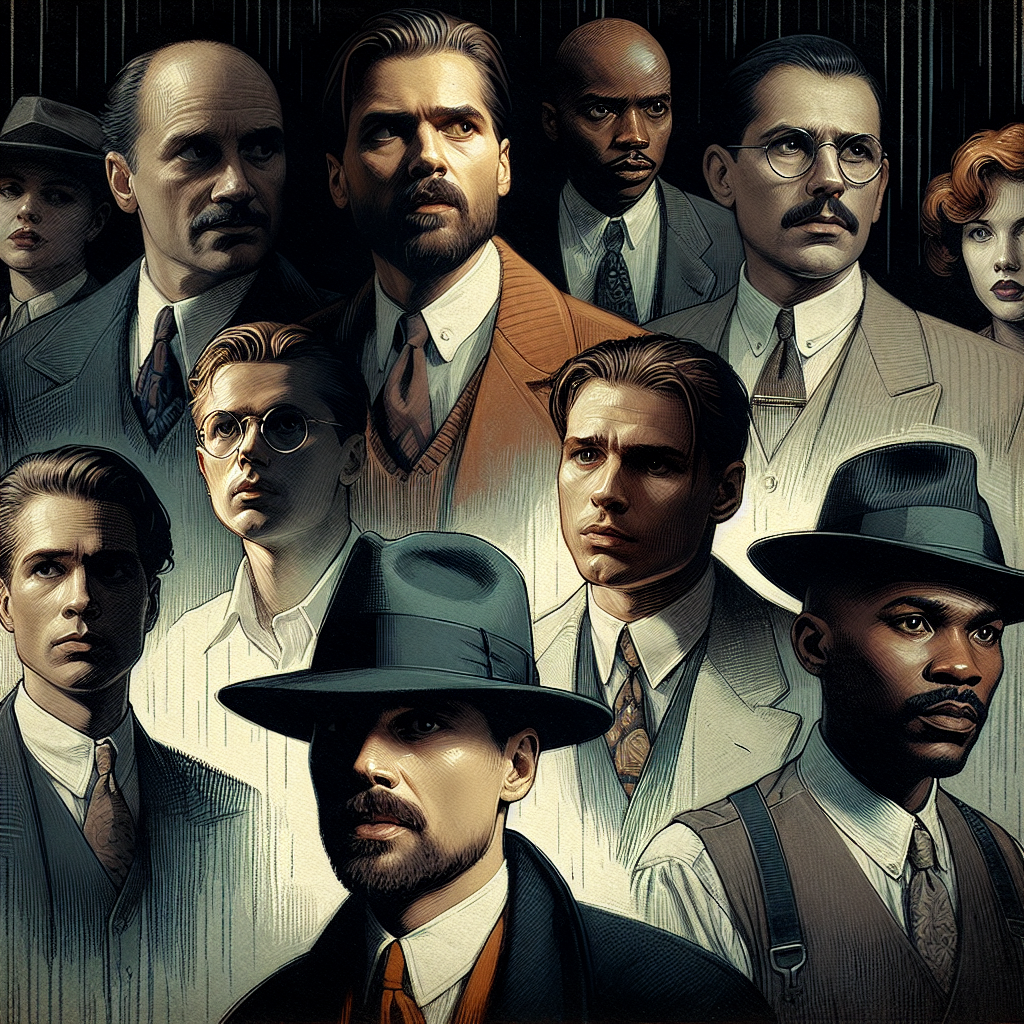Unraveling Mystery: Why The Usual Suspects (1995) is a Must-Watch Classic Film
In the pantheon of modern cinema, few films achieve the enduring legacy and critical acclaim of The Usual Suspects (1995). Directed by Bryan Singer and written by Christopher McQuarrie, this neo-noir thriller is often heralded as a masterpiece for its intricate storytelling, compelling character arcs, and memorable twist ending. Its significance in the context of cinema history lies not only in its narrative genius but also in how it redefined the conventions of the crime thriller genre.
The Film’s Significance in Cinema History
Upon its release, The Usual Suspects quickly garnered attention for its clever plot structure and the charismatic ambiguity of its characters. The film’s success is exemplified by its performance at the Academy Awards, where it won Oscars for Best Original Screenplay and Best Supporting Actor for Kevin Spacey’s portrayal of Roger "Verbal" Kint. Set against the rich tapestry of postmodern film, The Usual Suspects stands out for revitalizing the "whodunit" genre with a fresh, innovative perspective that departed from formulaic storylines.
Main Themes
At the heart of The Usual Suspects are themes of deception, identity, and the manipulation of truth. The narrative is a tapestry of lies and half-truths, masterfully woven to keep audiences guessing. The theme of deception is omnipresent, compelling viewers to question the reliability of the narrator and to piece together fragmented clues scattered throughout the movie.
The film also delves into the idea of identity, as characters hide their true selves behind facades or engage in a masquerade to survive in the criminal underworld. The elusive figure of Keyser Söze personifies the theme of constructed identities—as the ultimate puppet master, Keyser embodies fear and respect that transcend his mythical existence. The film prompts the audience to consider the nature of identity, how perception shapes reality, and the thin line between myth and truth.
Character Arcs
The ensemble cast of The Usual Suspects delivers a compelling array of character arcs that further enrich the film. Each suspect—Dean Keaton (Gabriel Byrne), Michael McManus (Stephen Baldwin), Fred Fenster (Benicio del Toro), Todd Hockney (Kevin Pollak), and Verbal Kint—has a distinct persona and backstory, adding layers to the narrative.
Key to the film is Verbal Kint, whose apparent physical vulnerability contrasts with the strength of his mind. His transformation from a seemingly meek con artist to the orchestrator of complex criminal schemes challenges viewers’ assumptions and highlights the film’s theme of deception. The slow unraveling of Keaton, from a former dirty cop attempting redemption to someone ensnared in his criminal past, underscores the precarious nature of attempting to leave a life of crime. These arcs are intricately developed and converge to bolster the suspenseful climax of the film.
Cinematic Techniques
Bryan Singer’s direction, coupled with Newton Thomas Sigel’s cinematography, plays a pivotal role in the film’s impact, employing various cinematic techniques to maintain tension and engage the audience. The use of chiaroscuro lighting contributes to the film’s noir aesthetic, evoking feelings of suspense and moral ambiguity. This is most evident in the interrogation and flashback scenes, which juxtapose harsh, interrogative lighting with shadowy, uncertain memories.
John Ottman’s editing and score are also instrumental in crafting the film’s intense atmosphere. The non-linear narrative structure, paired with a haunting, minimalist score, allows the story to unfold with measured suspense, keeping the audience on edge as they try to unravel the mystery at the heart of the film.
Cultural, Social, and Historical Contexts
The Usual Suspects emerged during a period when Hollywood was rekindling interest in intricate, engaging storytelling—think of films like Pulp Fiction and Se7en. Its clever narrative and intricate plot signified a shift towards more sophisticated crime dramas which demanded active audience engagement.
The film’s reflection on criminal underworld dynamics and themes of corruption mirror societal concerns of the time, particularly in the mid-1990s when issues of crime and morality were prevalent in public discourse. Additionally, the enigmatic figure of Keyser Söze can be seen as a metaphor for faceless power and the fear it engenders, a notion that remains resonant today.
Legacy and Influence
The Usual Suspects has left an indelible mark on the film industry and popular culture. Its twist ending is frequently cited as one of the greatest in cinema history, influencing subsequent filmmakers to experiment with narrative structure and unreliable narration. The film has inspired countless homages and parodies, demonstrating its penetration into the cultural zeitgeist. Characters like Verbal Kint have become iconic for their brilliant subversion of audience expectations.
Reflective Takeaways
As we revisit The Usual Suspects in today’s context, we are prompted to ask: What does the enduring appeal of mystery and deception in film say about audiences’ desires for narrative complexity? How are modern crime thrillers building upon or departing from the framework established by The Usual Suspects? In an era dominated by digital media and information overload, how do themes of truth and identity in the film resonate with contemporary viewers?
In truth, The Usual Suspects transcends its genre to offer an enduring commentary on the human condition—the eternal struggle to discern truth from illusion. By immersing viewers in a world where nothing is as it seems, it challenges them to embrace the uncertainties of existence with curiosity and skepticism. This timeless exploration ensures that The Usual Suspects remains a classic, a fixture of cinematic dialogue that continues to captivate and intrigue audiences worldwide.
Got more questions? Our personalized Movies Explorer AI assistant is here to help. Click here to start a conversation!
[Advertisement]
Looking for deeper meaning in your favorite movies? Discover how ANY movie relates to positive biblical principles with Movies and Scripture GPT from BGodInspired.com. Click here to explore insights you might not have realized! . Simply key in any movie and let it show you insights you might not have realized otherwise!
[Advertisement]

